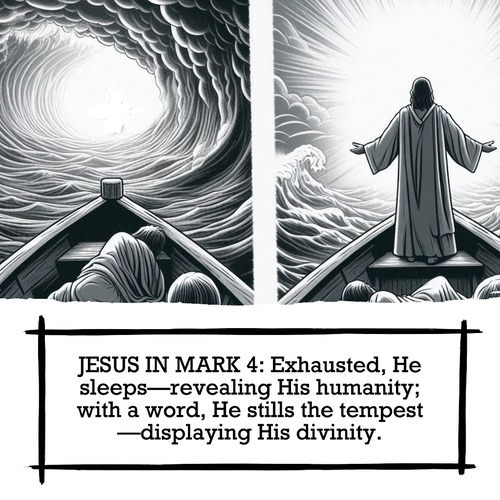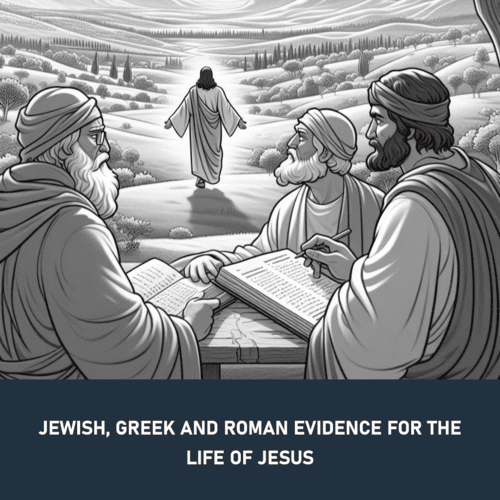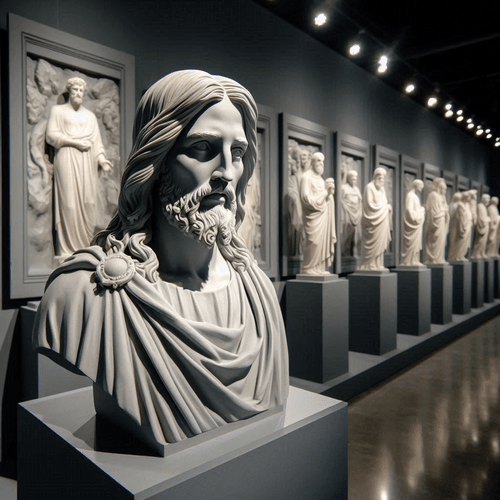John 19:28: Why Did Jesus Say ‘I Thirst’?
FROM OUR SERIES ON CHRIST’S SEVEN FINAL UTTERANCES FROM THE CROSS
When Jesus spoke His fifth statement from the cross—“I thirst”—He revealed profound truths about both His humanity and His divine mission. These two simple words carry theological depth that has resonated throughout church history.
THE TEXT IN CONTEXT
John 19:28-29 records the moment: “After this, Jesus, knowing that all was now finished, said (to fulfil the Scripture), ‘I thirst.’ A jar full of sour wine stood there, so they put a sponge full of the sour wine on a hyssop branch and held it to His mouth.”
This brief statement comes near the end of Jesus’ crucifixion. He had already spoken four times from the cross. His body had endured hours of torture, blood loss, and the physically devastating effects of crucifixion, which typically included extreme dehydration. When Jesus said, “I thirst,” He was expressing a genuine physical need.
THE DUAL NATURE OF CHRIST REVEALED
In these two words, we see powerful evidence of Jesus’ true humanity. The Reformed tradition has always emphasised the importance of Christ’s two natures—He is fully God and fully man. This doctrine, known as the hypostatic union, is essential to our understanding of salvation. CHECK OUT OUR POST: Why do We Affirm Jesus is Fully God and Fully Man?
By declaring His thirst, Jesus demonstrated He wasn’t merely appearing to suffer as some early heresies suggested. He truly experienced the full range of human pain and need. As the Westminster Confession states, Christ was “made under the law, undergoing the miseries of this life, the wrath of God, and the cursed death of the cross.”
The Son of God who had created water, who had offered “living water” to the Samaritan woman (John 4), now experienced the agony of thirst. This reality affirms Jesus didn’t take a shortcut through suffering but endured it completely as our substitute. He drained the cup of suffering down to the last drop.
FULFILLMENT OF SCRIPTURE
John explicitly tells us Jesus said “I thirst” specifically “to fulfil the Scripture.” This is a direct reference to Psalm 69:21: “For my thirst they gave me sour wine to drink.” The Reformed tradition takes seriously this fulfillment of prophecy as evidence of God’s sovereign plan working through history.
There may also be connections to Psalm 22:15, where the suffering servant says, “my tongue sticks to my jaws.” These Messianic psalms, written centuries before crucifixion was even practiced, pointed toward the specific details of Christ’s suffering.
Reformed theology emphasises nothing in Christ’s passion was accidental or outside God’s sovereign purpose. Even this expression of physical need was part of the divine plan to redeem sinners. And it had been foreseen and foretold in Scripture.
THEOLOGICAL IMPLICATIONS
In Reformed soteriology (doctrine of salvation), the true humanity of Christ is crucial. For Jesus to be our substitute and representative, He had to be truly human. As John Calvin wrote, “Our righteousness is not in ourselves but in Christ, we can possess it only by having Christ Himself.”
Jesus’ physical thirst parallels His spiritual suffering as He bore the judgement for our sins. On the cross, He experienced both physical agony and spiritual abandonment. Yet throughout, He remained in control, fulfilling Scripture with purpose.
Jesus’ cry also reflects the voluntary nature of Christ’s suffering. Though He could have miraculously relieved his own thirst, He chose to endure it, submitting to the full human experience of suffering.
CHRIST’S THIRST AND OUR SPIRITUAL THIRST
The irony is profound: Jesus, who offers living water that permanently quenches spiritual thirst (John 4:14), experienced the most extreme physical thirst. Reformed theologians have often pointed to this as a picture of substitution—Christ experienced thirst so we might have our deepest spiritual thirsts satisfied.
Augustine famously wrote, “Our hearts are restless until they rest in You.” He recognised our spiritual thirst cannot be quenched by anything but Christ himself. Jesus’ experience of physical thirst points to His role as the only one who can satisfy our deeper spiritual thirst for reconciliation with God.
The one who declared, “If anyone thirsts, let him come to me and drink” (John 7:37), now thirsted Himself. In this divine exchange, we see the heart of the gospel: Christ took what was ours—suffering, thirst, judgement—so we might receive what is His—righteousness, satisfaction, eternal life.
CONCLUSION
“I thirst” may be the shortest of Jesus’ statements from the cross, but it contains immense theological significance. In these two words, we see the true humanity of our Saviour, the perfect fulfillment of Scripture, and the substitutionary nature of Christ’s work.
The Reformed tradition reminds us Christ’s suffering wasn’t merely an example of endurance but a purposeful, necessary work of redemption. His physical thirst points to the spiritual satisfaction He provides to all who trust in Him. In His thirst, we find our deepest needs met. As we reflect on these words, we’re invited to find renewed wonder in the perfect humanity and divinity of our Saviour, who endured all things to secure our salvation.
RELATED FAQs
Did Jesus’ statement “I thirst” have any ceremonial significance in the context of Passover? Reformed scholar RC Sproul connects Jesus’ thirst to the fourth cup of the Passover meal, suggesting Christ’s thirst represented the incomplete ritual that would be fulfilled only at His death. This parallels the “cup” Jesus earlier prayed might pass from Him, highlighting that His suffering was the ceremonial completion of God’s redemptive plan foreshadowed in the Passover.
- How do Reformed theologians distinguish between Jesus’ physical thirst and His spiritual thirst on the cross? John Calvin emphasised Christ’s physical thirst was inseparable from His spiritual anguish as the sin-bearer. Herman Bavinck noted that while the physical thirst was genuine human suffering, it symbolised a deeper spiritual reality—Christ’s soul-thirst resulting from bearing divine judgement and experiencing alienation from the Father.
- What is the significance of the hyssop branch mentioned in this passage? The hyssop branch used to offer Jesus sour wine connects directly to Exodus imagery, where hyssop was used to apply blood to doorposts during Passover. Jonathan Edwards wrote this detail intentionally links Christ’s suffering to the Exodus narrative, showing Jesus as both the perfect Passover lamb and the means of a new and greater exodus from sin’s bondage.
- How does the Reformed tradition understand the relationship between Jesus saying “I thirst” and His statement “It is finished”? Geerhardus Vos pointed out “I thirst” follows John’s statement that Jesus knew “all was now finished,” suggesting this cry wasn’t merely a response to physical need but a deliberate fulfillment of prophecy. This demonstrates Christ remained sovereign even in His suffering, consciously fulfilling every detail of Scripture before declaring the work complete.
- Did Jesus’ experience of thirst contribute to the Reformed understanding of his role as High Priest? According to Louis Berkhof and other Reformed theologians, Christ’s experience of thirst highlights His qualification as our High Priest who can “sympathise with our weaknesses” (Hebrews 4:15). This real human experience of suffering enhances our understanding of Christ’s priestly office, where He not only offers sacrifice but does so as one who fully understands our frailty.
- How does Jesus’ thirst relate to the covenant promises in Reformed theology? Michael Horton argues Jesus’ thirst represents the covenant curses of Deuteronomy being poured out on Christ as covenant mediator. In covenant theology, Jesus’ experiencing thirst fulfils the prophetic warnings about covenant-breakers suffering thirst and deprivation, though Christ himself kept the covenant perfectly—He bore the curse for His people’s covenant unfaithfulness.
What parallels exist between Jesus’ thirst on the cross and other biblical thirst narratives? Reformed biblical theologians note significant parallels between Jesus’ thirst and Israel’s wilderness thirst (Exodus 17), where God provided water from rock. Charles Spurgeon observed that just as Moses struck the rock to provide water for thirsty Israel, Christ, the true Rock (1 Corinthians 10:4), was struck to provide living water for all believers, even while experiencing thirst Himself.
SEVEN UTTERANCES FROM THE CROSS: OUR RELATED POSTS
Editor's Pick

Self-Authentication: Why Scripture Doesn’t Need External Validation
"How can the Bible prove itself? Isn't that circular reasoning?" This objection echoes through university classrooms, coffee shop discussions, and [...]

Do Christians Need Holy Shrines? Why the Reformed Answer Is No
Walk into a medieval cathedral and you'll encounter ornate shrines, gilded reliquaries, and designated "holy places" where pilgrims gather to [...]

I Want To Believe, But Can’t: What Do I Do?
"I want to believe in God. I really do. But I just can't seem to make it happen. I've tried [...]

BC 1446 or 1250: When Did the Exodus Really Happen?
WHY REFORMED SCHOLARS SUPPORT THE EARLY DATE Many a critic makes the claim: “Archaeology has disproven the biblical account [...]

Does God Know the Future? All of It, Perfectly?
Think about this: our prayers tell on us. Every time we ask God for something, we’re confessing—often without realising it—what [...]

Can Christian Couples Choose Permanent Birth Control?
Consider Sarah, whose fourth pregnancy nearly killed her due to severe pre-eclampsia, leaving her hospitalised for months. Or David and [...]

Bone of My Bones: Why Eve Was Created From Adam’s Body
"This at last is bone of my bones and flesh of my flesh!" Adam's joyful exclamation upon first seeing Eve [...]

Is Calvinism Fatalism in Christian Disguise? Think Again
We hear the taunt every now and then: "Calvinism is just fatalism dressed up in Christian jargon." Critics argue Reformed [...]

Can Churches Conduct Same-Sex Weddings?
In an era of rapid cultural change, churches across America face mounting pressure to redefine their understanding of marriage. As [...]

Gender Reassignment: Can Christian Doctors Perform These Surgeries?
In the quiet of a clinic, a Christian physician faces a challenging ethical question. A patient sits across the desk, [...]
SUPPORT US:
Feel the Holy Spirit's gentle nudge to partner with us?
Donate Online:
Account Name: TRUTHS TO DIE FOR FOUNDATION
Account Number: 10243565459
Bank IFSC: IDFB0043391
Bank Name: IDFC FIRST BANK






